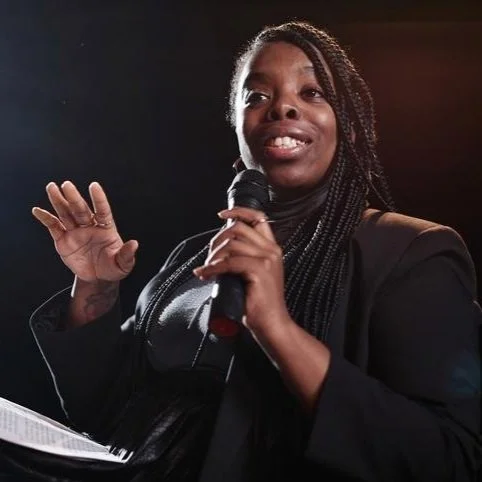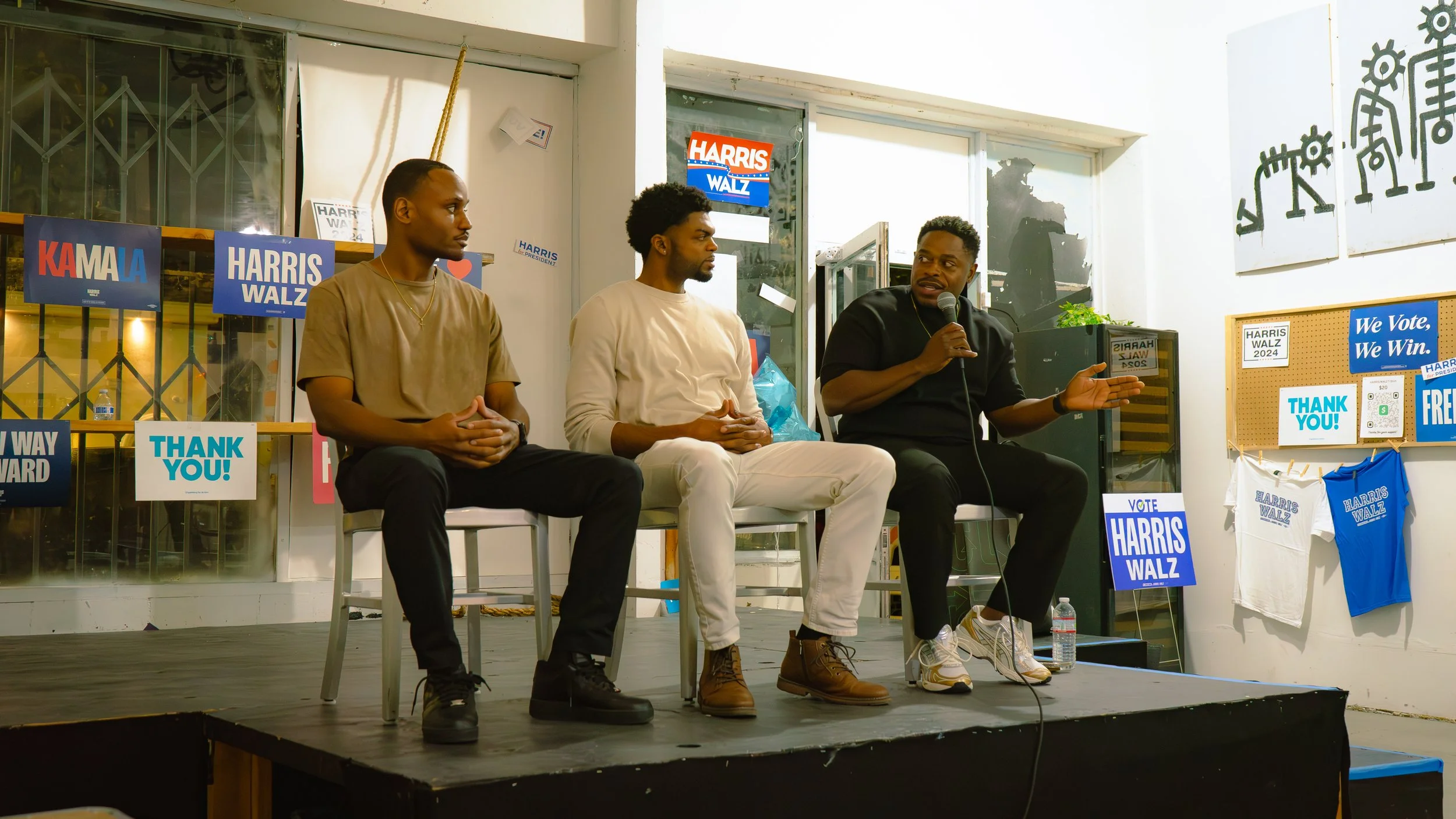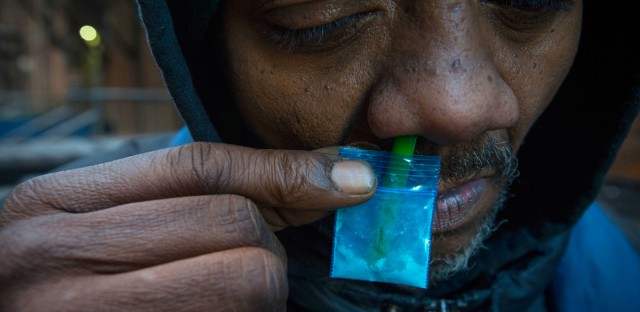Navigating Being the Only Black Person in the Workplace
In many professional and social settings, being the only Black person in the room can be an isolating and challenging experience, but it also offers opportunities for growth, advocacy, and leadership. We discuss it here!
By: Jamila Gomez
In many professional and social settings, being the only Black person in the room can be an isolating and challenging experience. This situation is not uncommon in various industries and institutions where diversity is still a work in progress. Navigating these environments requires resilience, confidence, and a proactive approach to addressing both the overt and subtle challenges that arise. This article explores the complexities of being the only Black person in the room and offers strategies for coping and thriving in these situations.
The Emotional Landscape
Being the only Black person in a predominantly white or non-Black environment can evoke a range of emotions, from pride and determination to stress and fatigue. Some common experiences include:
1. Visibility and Scrutiny
Often, Black individuals may feel hyper-visible and under constant scrutiny, leading to pressure to perform perfectly and avoid mistakes.
2. Isolation and Loneliness
The absence of peers who share similar cultural backgrounds can result in feelings of isolation and a lack of belonging.
3. Microaggressions
Subtle, often unintentional, discriminatory comments or behaviors can accumulate, causing emotional distress and frustration.
4. Tokenism
Being perceived as a representative of an entire race rather than as an individual can be burdensome and limiting.
Strategies for Thriving
1. Building Confidence and Self-Awareness
- Know Your Worth: Recognize your qualifications, achievements, and the unique perspectives you bring to the table. Your presence is valuable.
- Develop Self-Awareness: Understand your own triggers and responses. Reflect on your experiences and how they shape your reactions and interactions.
2. Creating and Seeking Support Networks
- Find Allies: Identify colleagues or peers who can offer support, understanding, and advocacy. Allies can help amplify your voice and stand with you against bias.
- Join or Form ERGs: Employee Resource Groups (ERGs) focused on Black professionals can provide a sense of community, mentorship, and shared experiences.
- Mentorship: Seek mentors within and outside your organization who can offer guidance, advice, and support.
3. Addressing Microaggressions and Bias
- Speak Up: When encountering microaggressions, calmly address them by explaining how they impact you. Use “I” statements to convey your feelings without being confrontational.
- Educate: Sometimes, people are unaware of their biases. Educate them gently but firmly about the impact of their words or actions.
- Report When Necessary: If microaggressions persist or escalate, consider reporting them to HR. Document incidents to provide a clear account.
4. Self-Care and Mental Health
- Prioritize Self-Care: Engage in activities that replenish your energy and reduce stress, such as exercise, hobbies, and spending time with loved ones.
- Professional Help: Consider therapy or counseling to navigate the emotional challenges and develop coping strategies.
- Set Boundaries: Protect your mental health by setting boundaries around how much emotional labor you’re willing to undertake in educating others.
5. Leveraging Your Unique Perspective
- Contribute Authentically: Share your unique insights and perspectives that come from your lived experiences. Diverse viewpoints are crucial for innovation and problem-solving.
- Leadership and Advocacy: Use your position to advocate for more inclusive practices and policies. Encourage your organization to prioritize diversity and inclusion initiatives.
Creating Systemic Change
While individual strategies are crucial, systemic change is necessary to address the root causes of these challenges. Organizations can play a significant role in creating more inclusive environments. Here’s how:
1. Diversity and Inclusion Initiatives
Implement comprehensive diversity and inclusion programs that address recruitment, retention, and advancement of Black professionals.
2. Bias Training
Regularly conduct bias and sensitivity training for all employees to foster a more understanding and respectful workplace culture.
3. Representation Matters
Strive for greater representation of Black individuals at all levels of the organization, including leadership roles.
4. Open Dialogue
Encourage open conversations about race and inclusion, providing safe spaces for Black employees to share their experiences and concerns.
Being the only Black person in the room comes with unique challenges, but it also offers opportunities for growth, advocacy, and leadership. By employing personal strategies and advocating for systemic change, Black individuals can navigate these environments more effectively and contribute to creating more inclusive and equitable spaces. Building confidence, seeking support, addressing bias, and prioritizing self-care are essential steps towards thriving in any professional or social setting.
YOU MAY ALSO BE INTERESTED IN:
SHARE TO SOCIAL MEDIA
The Effects of Financial Insecurity on the Mental Health of College Students
College students are told that the 4 years they spend at a University will be huge in determining their future success, however they do not always have the funds to afford college itself. Financial difficulties, and worry over school debt can be detrimental to your mental health. We discuss it here!
By: Sydni Hatley
College is a weird time for many. You are away from home for the first time but are usually still financially dependent on your parents. You can make your own decisions and don’t have adult supervision governing your every move, but for most of that time are not even old enough to legally buy a drink.
And finally, you have the freedom to do what you want, but not the funds to do it. College students are told that the four years they spend at a University will be huge in determining their career path and success, however they do not always have the funds to afford college itself, let alone the many personal expenses that come with it.
According to sciencedaily.com, “experiencing financial difficulties and worrying about debt at university increases the risk of mental health conditions such as depression and alcohol dependency”. College students stress so much about how to pay for school because, let’s face it, college is expensive! Thousands of dollars and it isn’t getting cheaper. Not everyone can afford this and that is completely understandable.
Many families struggle to pay for their kids to go to school, and many kids share the financial stresses with their parents. This stress comes from the want to help out and not see their own parents struggling, but the reality is, it is hard for a college student to raise that kind of money mostly or entirely on their own. Attending college itself is expensive and it is basically impossible to be a full-time student while working a job that makes enough to pay for it. Financial insecurity is a constant stressor, so the fact that many students must find a way to pay for that and personal, day-to-day life expenses makes it easy to understand the connection to increased depression and alcohol dependency.
The need for money and financial stability is the main reason why so many college students become personal entrepreneurs while in school. Students start their own hair businesses, paper-writing businesses, lash tech businesses, makeup businesses, and anything that can help bring in some money. Students are forced to get creative for pocket-change, and sometimes are forced to do so whether it is by legal or even illegal means.
If the cost of obtaining an education were not so expensive and catered to the middle-upper and upper classes, students would not have to do so much to make the money for their education. College itself is already stressful enough with having to compete with your classmates and get grades good enough to get you a good job. This also does not include the need to be involved on and off campus as well, so a financial stressor on a college student’s back is just one more thing to cause their mental health to deteriorate.
To assist with relieving financial stress off of college student’s backs, institutions should consider either lowering the (unnecessary) costs affiliated with the institution, or at least offer more scholarship opportunities. They should also consider allocating more of the money that is donated to the institution to scholarships that will help make school more affordable. Education should not be expensive, it should really be free, but if America wants to charge its students, it should at least make attendance more accessible for all.
YOU MAY ALSO BE INTERESTED IN:
SHARE TO SOCIAL MEDIA
Suffering In Silence: Top 3 Reasons Why African Americans Fail To Seek Mental Health Care
Many mental health issues get swept under the rug in the Black community because our people fail to seek help. Here are the top three reasons why African Americans fail to seek mental health care.
By: Risa Smith
Many mental health issues get swept under the rug in the Black community because our people fail to seek help. Dealing with mental issues is often seen as a weakness or laziness and the advice of the elders would be to "toughen up and keep it moving", or "pray about it". Here are the top three reasons why African Americans fail to seek mental health care.
Not Enough Doctors That Look Like Us
Throughout medical school, the Blacks were always outnumbered by a landslide. No matter how qualified, we had to work harder than most to even be respected in the field. Damon Tweedy, M.D. shared his experience of starting as a Duke Medical student only to be mistaken as a custodian. It is hard enough to live in fear of having a social stigma regarding a mental illness, only to walk into the doctor's office to find someone who does not understand or can’t relate to you. The gap can be bridged as physicians gain more cultural competency.
Faith And Spirituality
While God certainly has the power to heal, having an awareness of what you are struggling with allows for much quicker healing than denial. It is imperative to both rely on your spirituality and faith as well as medical and therapeutic treatment depending on the severity of the condition.
Lack Of Access To Quality Care Or Uninsured
About 27% of African Americans live below the poverty level compared to about 10.8% of non Hispanic whites (American Psychiatric Association). Some are not able to afford the cost of healthcare or afford the medications prescribed to them. I'm sure you have that one cousin that will never go to the doctor because they just don't want to pay that co-pay!
Whatever the reason is that you have not taken that step to get mental health care, please do not suffer in silence!
*Risa Smith is a physician assistant and blogger for www.realtalkidentity.com! Click the link to check out more of her content!
YOU MAY ALSO BE INTERESTED IN:
SHARE TO SOCIAL MEDIA
The Opioid Crisis And How It's Affecting Black America
Over the last 2 years, opioids have been attacking the Black communities in alarming numbers. We discuss how the Opioid Crisis has gone virtually unnoticed in Black and Minority communities.
By: Eric Lewis
I'll admit. I had a completely different topic that I considered discussing with you today. It was about electronics and some of the gadgets you must get for the new year (besides your smartphone). I may still even write about it to get you familiar with them. But today I am not going to mention it, because I think given this climate we're in, discussing real issues related to us, especially in the black community: mental health and awareness.
Me choosing to share my thoughts and experience with this comes from a movie I watched just this morning, and listening to a song. Coincidentally, they complement each other in a perfectly haunting harmony. The movie: Beautiful Boy. The song: “Treasure” by Sampha. The movie stars Steve Carell (The Office) and Timothee Chalamet and tells the story of a young man's addiction to meth and the father's struggle to save him. It's based on the memoirs Beautiful Boy by David Sheff and Tweak by Nic Sheff. The movie was a sad and stirring account of Nic's addiction and the multiple relapses that occurred during his journey to stay clean and sober. I will admit, y'all, it was heartbreaking to see this portrayal of abuse and also a constant reminder that addiction affects everyone.
The Opioid Crisis has been widely debated as going pretty much unnoticed in Black and Minority communities, from a societal standpoint. In fact, during the 1970s and 80s, the concern was more on criminalizing minorities with The War On Drugs rather than seeking treatment. Now, with the advent of opioids affecting Rural America, the light has been shined more on a national scale. From a localized level, I'm sure whoever is reading this has been affected by drug addiction and abuse, whether it be family members, friends or environment. Growing up in my hometown, I saw drug and substance abuse around me constantly. I had family members very close to me that fell victim to crack, cocaine, heroin and lots of other illegal substances. It's a paralyzing feeling and constant paranoidal emotion because you know what is wrong, yet feel powerless to help.
Over the last 2 years, opioids have been attacking the Black communities in alarming numbers. From a nationwide standpoint, whites still account for a large number of opioid addiction cases. However, just in Illinois alone, Blacks make up for over a quarter of opioid deaths in the state...and we account for about 15% of the population. In Chicago, the numbers are more staggering: Blacks account for 32% of the population, but about half of all opioid overdose deaths (48%) come from the Black population. Scary numbers, people. What's more scary is the numbers are climbing.
Seeing the movie Beautiful Boy had me reminiscing back to my old days of dealing with people who were addicted to different substances and understanding the pain involved in seeking help. It is a realization that is all too familiar with millions of people. And this movie portrays it in painstaking detail.
It's available for streaming on Amazon Prime Video. The soundtrack (which complements the movie extremely well) is available on your favorite streaming app. I suggest you watch it.
If you or anyone you know struggles with an addiction, do know that the road to recovery starts with a phone call. Please contact 1-844-LifeChange (543-3242) or go to www.LightHouseNetwork.org. It's available 24/7, free and confidential.
Eric Lewis
@TheTmPLife


















